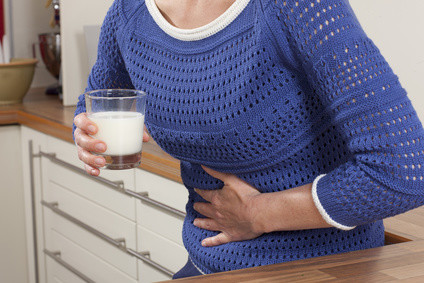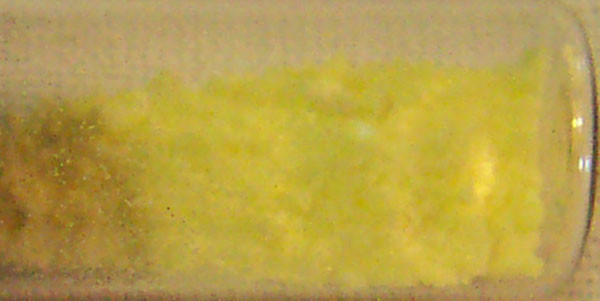Sulfur, Rotten Eggs Burps (Belching), Foul Smelling Gas, Foods High in Sulfur
Belching or burping is a normal process whereby gas in the upper digestive tract is expelled into the environment. Most of this gas is air that is swallowed when eating, drinking or talking. Mouth breathers (often due to nasal congestion) tend to swallow more air. However, belching may be considered abnormal if it is excessive. Various health disorders can causes excessive burping.
Another abnormality that may occur with burps is when the expelled air (eructation) has an offensive odor. Burps are usually not pleasant smelling. However, if the odor is extremely offensive then it may be a symptom of a disease. Burps that smell like vomit, rotten eggs or decomposing waste are some examples of especially offensive burp odors. In some cases there may even be a feces-like odor to the burp.
What Are Sulfur Burps?
Sulfur (UK ~ sulphur) burps is air that is forcefully expelled from the mouth which has a “rotten egg” smell. This specific type of odor is usually due to the presence of hydrogen sulfide (H2S), also spelled as hydrogen sulphide. This is similar, although usually less intense, than a stink bomb which is a popular childhood prank toy. These sulfur burps do not only occur when eggs are consumed.
While the chemical digestion of high-sulfur foods are one possible cause of sulfur burps, the other possibility is that certain microbes (particularly bacteria) may also release sulfur compounds as a byproduct. Some of these microbes may be a natural part of the bacteria in the gut (normal intestinal flora), while others could be disease-causing (pathogenic) bacteria.
Sulfur-Containing Foods
Sulfur is widely found in various natural foods as well as processed foods. In small quantities, the sulfur content is not usually a problem. However, consuming a diet of high-sulfur foods in the backdrop of certain diseases is more likely to contribute to sulfur burps.
- Sulfur-containing food preservatives, like sulfur dioxide, often used on dried fruits, pre-cooked canned foods and certain fruit juice concentrates.
- All animal protein such as poultry, red meat, eggs and dairy as well as milk and dairy products.
- Vegetables such as asparagus, broccoli, cabbage, garlic, mustard, onions, pak choi (Chinese cabbage), jicama, parsley, sweet potatoes, Swiss chard, tomatoes, watercress and yams.
- Legumes like beans, peas, lentils and soy bean.
- Fruits including avocado, bananas and watermelon.
- Grains, nuts and seeds including corn, sunflower seeds, oats, cashews, walnuts, almonds, sesame seeds and coconut.
- Tea and coffee.
- Whey protein
- Amino acid supplements containing cysteine and methionine.
- Vitamins B1 (thiamine) and biotin.
- Certain medication may contain high quantities of sulfur.

Sulfur-Reducing Microbes
Various microbes can break down food in the gut during digestion as well as any residual nutrients that remain after digestion. Some of these microbes, particularly bacteria, may consume sulfur-containing compounds and release hydrogen sulfide (H2S) as a byproduct. Alternatively, some of these bacteria may contain enzymes that breakdown compounds within certain foods thereby releasing the sulfur.
Some examples of sulfur-reducing bacteria includes:
- Helicobacter pylori, is a bacterium that causes gastritis and peptic ulcers. The presence of H. pylori within the stomach is diagnosed by urea breath test. Treatment includes eradication therapy with antibiotics.
- Giardia lamblia, a protozoan (single-cell parasite), is usually contracted by food or water poisoning. The resulting gastrointestinal illness is known as giardiasis. For diagnosis and treatment read about human intestinal parasites.
- Intestinal bacteria that are part of normal intestinal flora can cause various symptoms such as sulfur burps when there is an overgrowth as is seen in small intestinal bacterial overgrowth. SIBO may be also present in lactose intolerance or fructose malabsorption. In certain diseases like celiac disease or Crohn’s disease, foods may not be digested completely and can be therefore broken down by sulfur-reducing bacteria that produce hydrogen sulfide.

How To Get Rid Of Sulfur Burps?
- Remove as much sulfur-containing foods as possible from your diet. This may reduce the sulfur smell of burps and gas in a day or two. Thereafter any other cause of excessive belching also has to be attended to with diet, lifestyle and even medication.
- An elimination diet is helpful in identifying foods that may be contributing to sulfur burps. The possible trigger food is stopped altogether and the symptoms are monitored. If the symptoms are absent then the food is reintroduced into the diet and again there must be monitoring to check if the symptoms return.
- Moderate physical activity after meals can help to expedite the movement of food through the digestive tract. This reduces transit time so that bacteria have less time to breakdown food and contribute to sulfur burps.
- A gluten-free diet is helpful for people with celiac disease. However, some people may not have celiac disease yet experience gluten intolerance. There is still some controversy surrounding gluten intolerance but if the symptoms ease after stopping foods like wheat, barley or rye then it should also be removed from the diet.
- Any person with a history of gastritis or peptic ulcers should seek medical treatment, particularly when Helicobacter pylori is the cause. Antibiotics may be necessary if H.pylori is confirmed.
- Acid reflux and gastroparesis are two other conditions that can also be a contributing factor in sulfur burps and should be appropriately treated. This may require a combination of antacids, acid-suppressing drugs and prokinetic agents. A GERD diet may be helpful.
- Giardiasis needs to be confirmed with a stool test where the parasitic eggs are identified. Anti-protozoal drugs may then be prescribed to eradicate the protozoa.
- Inflammatory bowel disease (IBD), specifically Crohn’s disease, needs to confirmed and appropriately treated if it is a cause of sulfur burps.
Other Points to Consider
- Dietary changes should not be extreme or excessive. The elimination diet approach is advisable to identify potentially problematic foods.
- Never stop any prescribed medication that is suspected to be a cause of sulfur burps. Always consult with a doctor or pharmacist.
- Avoid unnecessary foods and beverages, especially junk foods and unhealthy drinks, that may not only cause sulfur burps but can also have other adverse health implications.
References
- Sulfur amino acid restriction diet. Harvard School of Public Health
- Effects of Dietary Sulfur on Gut Microbiota H2S Production. University of Minnesota Center for Immunology
Last updated on September 10, 2018.






